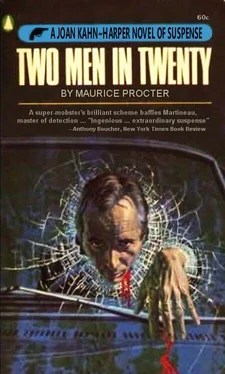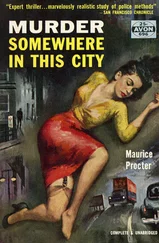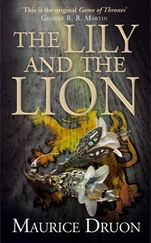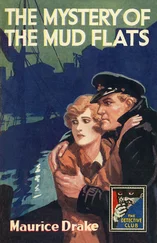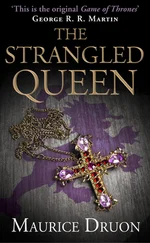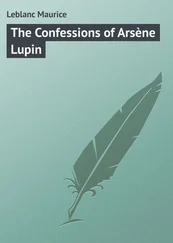Maurice Procter - Two men in twenty
Здесь есть возможность читать онлайн «Maurice Procter - Two men in twenty» весь текст электронной книги совершенно бесплатно (целиком полную версию без сокращений). В некоторых случаях можно слушать аудио, скачать через торрент в формате fb2 и присутствует краткое содержание. Год выпуска: 1963, Издательство: London : Hutchinson, Жанр: Полицейский детектив, на английском языке. Описание произведения, (предисловие) а так же отзывы посетителей доступны на портале библиотеки ЛибКат.
- Название:Two men in twenty
- Автор:
- Издательство:London : Hutchinson
- Жанр:
- Год:1963
- ISBN:нет данных
- Рейтинг книги:4 / 5. Голосов: 1
-
Избранное:Добавить в избранное
- Отзывы:
-
Ваша оценка:
- 80
- 1
- 2
- 3
- 4
- 5
Two men in twenty: краткое содержание, описание и аннотация
Предлагаем к чтению аннотацию, описание, краткое содержание или предисловие (зависит от того, что написал сам автор книги «Two men in twenty»). Если вы не нашли необходимую информацию о книге — напишите в комментариях, мы постараемся отыскать её.
Two men in twenty — читать онлайн бесплатно полную книгу (весь текст) целиком
Ниже представлен текст книги, разбитый по страницам. Система сохранения места последней прочитанной страницы, позволяет с удобством читать онлайн бесплатно книгу «Two men in twenty», без необходимости каждый раз заново искать на чём Вы остановились. Поставьте закладку, и сможете в любой момент перейти на страницу, на которой закончили чтение.
Интервал:
Закладка:
He drove in that direction, not troubling now to look for lurking policemen. He did not get very far. Out of the last side street before the main road, a large, dark blue van rolled. It was as big as a furniture removal van, and was in fact the van used to remove policemen and their families and chattels from one police house to another. It stopped, blocking three quarters of the street. There was room for the florist's van to pass behind it, but Coggan knew that the driver would still be in reverse gear, ready to move and block any part of the road where an escaping driver might try to pass. A man driving at anything like a reasonable speed would not be able to change his direction from one side of the road to the other quickly enough to fool the driver of the removal van.
'No way through,' he decided. 'And they've got this tulip wagon taped. I'll have to dump it.'
He took the first side street to the left, and drove along to the end of a row of houses. Here there was a narrow way, known locally as a snicket, and it went straight through, cutting across side streets until it ended at the back street behind the main road. It was just wide enough for him to put in the florist's van and then partially open the driver's door and slip out of his seat. He headed for the main road buildings whose backs were towards him. He already had an idea, based on the early days of the Berlin Wall, of how he would slip through the police cordon.
When he reached the main road buildings, identifiable as such because they were taller and better maintained than the houses in the side streets behind them, he saw that he was in the middle of a block of considerable length. He assumed that they were house-and-shop premises, or lock-up shops with flats above them. He chose the nearest one which was in darkness, and climbed over a locked backyard gate. In the early days of the Berlin Wall, certain rows of houses had been temporarily used as part of the wall itself. People had escaped to the west by going in at the back door of a house and emerging at the front. Coggan proposed to do the same sort of thing.
The back door of the darkened building had two glass panels and a latch lock. Coggan did not pause to reflect that this was rather inadequate for the security of premises which might carry valuable stock. With his gloved fist he hit the glass nearest to the lock. The glass caved in and broke away with a frightening clatter. He knocked a few more pieces out and inserted his hand to turn the latch. The door opened easily then.
Inside, he perceived that he was at the foot of some carpeted stairs. He went up, and encountered a door at the top. There was light under the door. He listened for a moment, and heard voices. Accent and intonation assured him that this was radio or television, and there was also a small whining sound which he could not identify. Trying the door carefully, he found that it was not locked. He pushed it open boldly, and entered the room beyond.
A West Highland terrier fussed about his feet, wagging its tail and whining with eagerness. The room was comfortably furnished, and faintly pervaded with a mixed odour of cigars and dog. A television set in a corner was emitting light and sound, and there was a lighted table lamp on top of the set. In an armchair beside the fireplace, but facing the set, a big, stout, ruddy-faced old man was fast asleep. On a low table at his elbow there was an ashtray and a cigar which had gone out, and a glass half full of beer and an empty bottle. Coggan picked up the glass with a gloved hand, and drank the beer.
He went to the window and parted the curtains. He saw that from the window sill there was a drop of about fourteen feet to the street. There was some traffic and a few people, but no undue commotion. He was convinced that the police had not yet found the florist's van, and if they had heard the crash of breaking glass they had not yet thought of the Berlin Wall trick. Well, they hadn't had much chance. It was not much more than two minutes since the van had been abandoned.
As he opened the window the dog's excitement became unbearable. It began to yap. He obtruded his head and looked down, and both ways along the street. There were two girls fifty yards away, looking into a shop window. Forty yards away in the other direction a man was walking away from him. He put one leg over the sill, and as he took a last look into the room he saw that the old man was sitting up and staring at him. He lowered himself until he hung from the window at arm's length, then he dropped to the ground. Unhurt and not even shaken he looked about him. The two girls were still looking into the shop window, and the walker had not turned round.
A car had passed, and another was some distance away. He ran across the road at top speed, and was round a corner and out of sight before the old man roused himself to get up and look out of the window. By the time the old man had shouted long enough and loud enough to bring a policeman, Coggan was half a mile away.
* * * * *
It was twenty minutes before news of the abandoned van was given to the Information Room and relayed back to Martineau. When he heard it he sent men into the cordoned area, and he ordered that every vehicle inside the area should be picketed. He assumed that the XXC mob was now without transport, and he intended that they should remain so.
Some time after that, when he heard that the mob's wheel man had slipped through the cordon, he guessed that the remainder would still be waiting inside some building, waiting for transport which would not arrive. He sent Detective Constable Cassidy back to Headquarters to consult the 'key book', and to telephone managers and suchlike people who held keys of vulnerable premises. Cassidy was to ask them to bring their keys to Headquarters and remain in readiness there.
There were men still standing by in other divisions. At Martineau's request Clay called out enough of these men to form an inner cordon around the College Street area. Then, with his own squad, Martineau went to College Street.
'If necessary, we'll search every building,' he said to Sergeant Devery. 'But we'll start with the likely ones. Let's go and look at Haddon and Walker's.'
They went and looked, moving very quietly round the building. They used light very sparingly, but they ascertained that every possible place of entry was secure and unmarked. Devery tried doors silently, with extreme care.
'Nothing here,' Martineau said. 'Let's go and look at Holroyd's.'
* * * * *
Inside Haddon and Walker's four thieves had been convinced for some time that their plans had gone awry. But little had been said. Cain was as worried as anybody, but he told the others: 'We can't do anything. We'll just have to wait, and keep quiet.'
France, a man who had been cornered many a time, had no comment to make. He moved away from the others, and sat on the floor close to the door by which they had entered, and by which they hoped to leave. He listened for noises outside, and considered the situation as coolly as he could.
Coggan was overdue. He could have had an accident with the van, and might be in hospital. Or he might be unhurt, but left with an undriveable vehicle, in which case he might be some time getting hold of another one. He could have had a mechanical breakdown which could not be quickly repaired, in which case again he would have to find another vehicle.
There were less hopeful surmises. The police might have got wind of something, and the area might be so infested with them that Coggan was afraid to come near. Or he might be under arrest, with the police trying to make him tell them where his friends were. Only one thing was certain. Coggan had not driven past the back door of Haddon and Walker's since the men inside had settled down to wait for him. No vehicle had passed along that quiet street.
Читать дальшеИнтервал:
Закладка:
Похожие книги на «Two men in twenty»
Представляем Вашему вниманию похожие книги на «Two men in twenty» списком для выбора. Мы отобрали схожую по названию и смыслу литературу в надежде предоставить читателям больше вариантов отыскать новые, интересные, ещё непрочитанные произведения.
Обсуждение, отзывы о книге «Two men in twenty» и просто собственные мнения читателей. Оставьте ваши комментарии, напишите, что Вы думаете о произведении, его смысле или главных героях. Укажите что конкретно понравилось, а что нет, и почему Вы так считаете.
